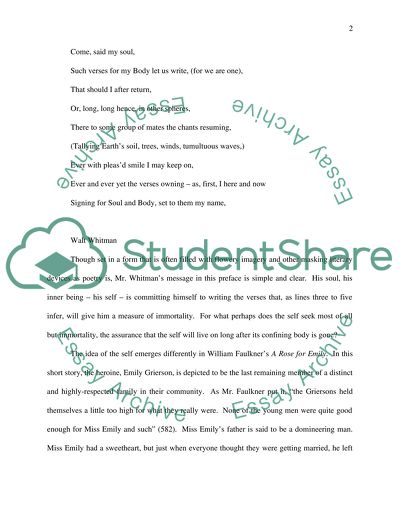Cite this document
(“Selfhood in American Literature Assignment Example | Topics and Well Written Essays - 2000 words”, n.d.)
Selfhood in American Literature Assignment Example | Topics and Well Written Essays - 2000 words. Retrieved from https://studentshare.org/literature/1530938-responses-to-essay-questions-on-selfhood-in-american-literature-and-an-analysis-of-selected-passages-of-the-grapes-of-wrath
Selfhood in American Literature Assignment Example | Topics and Well Written Essays - 2000 words. Retrieved from https://studentshare.org/literature/1530938-responses-to-essay-questions-on-selfhood-in-american-literature-and-an-analysis-of-selected-passages-of-the-grapes-of-wrath
(Selfhood in American Literature Assignment Example | Topics and Well Written Essays - 2000 Words)
Selfhood in American Literature Assignment Example | Topics and Well Written Essays - 2000 Words. https://studentshare.org/literature/1530938-responses-to-essay-questions-on-selfhood-in-american-literature-and-an-analysis-of-selected-passages-of-the-grapes-of-wrath.
Selfhood in American Literature Assignment Example | Topics and Well Written Essays - 2000 Words. https://studentshare.org/literature/1530938-responses-to-essay-questions-on-selfhood-in-american-literature-and-an-analysis-of-selected-passages-of-the-grapes-of-wrath.
“Selfhood in American Literature Assignment Example | Topics and Well Written Essays - 2000 Words”, n.d. https://studentshare.org/literature/1530938-responses-to-essay-questions-on-selfhood-in-american-literature-and-an-analysis-of-selected-passages-of-the-grapes-of-wrath.


